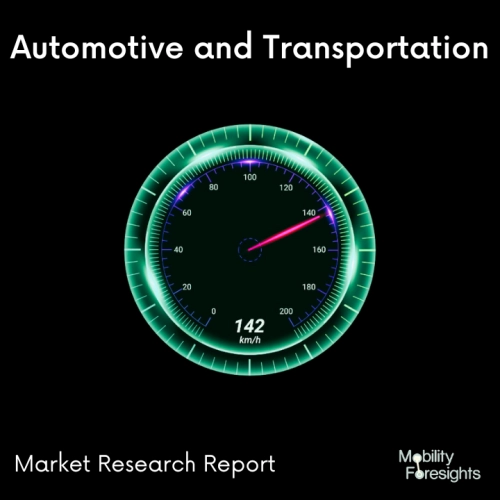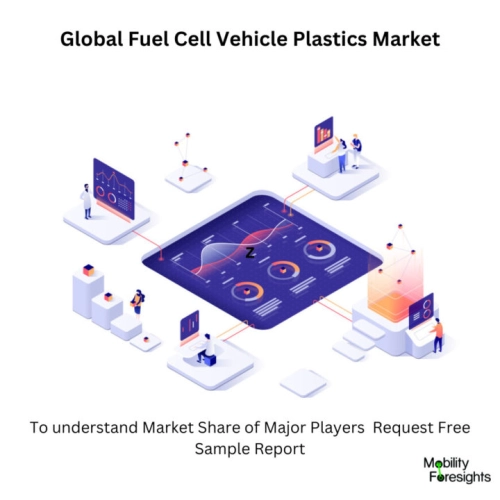
- Get in Touch with Us

Last Updated: Apr 25, 2025 | Study Period: 2023-2030
Electric-powered vehicles are viewed as a viable solution for future transportation. Many automakers are reevaluating fuel cells for long-distance travel, either as range extenders or as the only power source.
This presents new prospects for the application of specialty plastics and polymers in the fuel cell and fuel-cell system.
a battery-powered drive vehicle with a small fuel cell as a range extender to a drive train powered by a fuel cell with a relatively small buffer battery.
There are numerous options for the use of plastics and polymers in fuel-cell systems, regardless of the ultimate commercial solution.
Several parts of the fuel cells and the fuel-cell system can be constructed of polymers, which is something that is common to all types of vehicles with optimal energy usage.
Examples include the electrolyte membrane and the membrane electrode assembly, the bipolar plates electrode plates and end plates, gaskets, and various peripheral elements like air ducts and moisturisers.
The propulsion technology used by FCEVs is similar to that of electric vehicles in that hydrogen-based energy is converted to electricity by the fuel cell.
These cars don't emit any harmful exhaust emissions, in contrast to traditional internal combustion engine vehicles. Other advantages include enhancing the economy and diversifying the United States' energy supply.

The Global fuel cell vehicle plastics market accounted for $XX Billion in 2022 and is anticipated to reach $XX Billion by 2030, registering a CAGR of XX% from 2023 to 2030.
The joint venture between ElringKlinger and Plastic Omnium, EKPO Fuel Cell Technologies, is already functioning after receiving approval from the competition authorities and putting in place the numerous contractual agreements.
For a variety of applications, the newly formed joint firm has a competitive offer and the highest requirements for fuel cells and componentry.
It will prioritise the development of buses and commercial cars before turning its attention to personal vehicles. Additionally included in its range of operations are boats, railroads, and specialty vehicles.
According to automotive industrial requirements, the company's German manufacturing facility in Dettingen/Erms is already capable of producing up to 10,000 fuel cell stacks annually as well as essential stack components like bipolar plates or media modules.
In order to gain market share, EKPO will spearhead investments in the upcoming years for accelerating innovation, extending the commercial pipeline, and boosting production capacity.
| Sl no | Topic |
| 1 | Market Segmentation |
| 2 | Scope of the report |
| 3 | Abbreviations |
| 4 | Research Methodology |
| 5 | Executive Summary |
| 6 | Introduction |
| 7 | Insights from Industry stakeholders |
| 8 | Cost breakdown of Product by sub-components and average profit margin |
| 9 | Disruptive innovation in the Industry |
| 10 | Technology trends in the Industry |
| 11 | Consumer trends in the industry |
| 12 | Recent Production Milestones |
| 13 | Component Manufacturing in US, EU and China |
| 14 | COVID-19 impact on overall market |
| 15 | COVID-19 impact on Production of components |
| 16 | COVID-19 impact on Point of sale |
| 17 | Market Segmentation, Dynamics and Forecast by Geography, 2023-2030 |
| 18 | Market Segmentation, Dynamics and Forecast by Product Type, 2023-2030 |
| 19 | Market Segmentation, Dynamics and Forecast by Application, 2023-2030 |
| 20 | Market Segmentation, Dynamics and Forecast by End use, 2023-2030 |
| 21 | Product installation rate by OEM, 2023 |
| 22 | Incline/Decline in Average B-2-B selling price in past 5 years |
| 23 | Competition from substitute products |
| 24 | Gross margin and average profitability of suppliers |
| 25 | New product development in past 12 months |
| 26 | M&A in past 12 months |
| 27 | Growth strategy of leading players |
| 28 | Market share of vendors, 2023 |
| 29 | Company Profiles |
| 30 | Unmet needs and opportunity for new suppliers |
| 31 | Conclusion |
| 32 | Appendix |